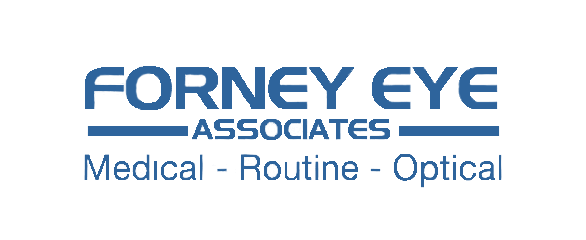
Refractive eye surgery is a safe and effective way to correct vision problems such as nearsightedness, farsightedness, and astigmatism. However, like any surgical procedure, refractive eye surgery comes with risks.
Approximately 5% of patients who undergo refractive surgery may experience complications.
Talk to your eye doctor if you experience any of these complications after refractive surgery. There are treatments available to help manage these complications.
What Is Corneal Ectasia?
Corneal ectasia is a sight-threatening condition that can occur after refractive surgery, such as LASIK or PRK and is characterized by an abnormal thinning of the cornea, the eye's outer clear surface. This thinning can cause the cornea to bulge, leading to blurred vision, glare, and halos.
Scleral lenses can help to improve vision, reduce glare and halos, and protect the eye from further damage in patients with corneal ectasia. They can also be a good option for patients with dry eyes, as they create a reservoir of tears between the lens and the eye.
Post-LASIK Corneal Aberrations
Post-LASIK higher-order aberrations (HOAs) are imperfections or irregularities of the eye's surface that LASIK surgery can cause. HOAs can cause a variety of vision problems, including:
- Poor night vision
- Starbursts and halos
- Blurred vision
- Double vision
- Difficulty with contrast sensitivity
The severity of symptoms will depend on the severity of the HOAs.
Scleral lenses can be a good option for patients with post-LASIK HOAs. Scleral lenses are large, rigid contact lenses that rest on the sclera, the white part of the eye. They are not affected by the shape of the cornea, which makes them a good option for patients with irregular corneas, such as those with post-LASIK HOAs.
Dry Eye Syndrome
LASIK surgery can sometimes damage the cornea's nerves, making the eye more prone to developing dry eye syndrome. Dry eye syndrome is when the eyes do not produce enough tears or tears that are not of good quality, leading to a variety of symptoms, including:
- Dry, scratchy, or irritated eyes
- Burning or stinging eyes
- Redness
- Blurred vision
- Light sensitivity
- A feeling of something in the eye
Scleral lenses can be a good option for patients with dry eye syndrome after LASIK.
Scleral lenses are made of highly oxygen-permeable materials, allowing oxygen to pass through to the eye, essential for keeping the eye healthy and comfortable.
Irregular Astigmatism
Irregular astigmatism is when the cornea, the clear front part of the eye, is unevenly curved, causing a variety of vision problems, including:
- Double vision
- Blurred vision
- Poor night vision
- Headaches
Scleral lenses can help to improve vision, reduce glare and halos, and protect the eye from further damage in patients with irregular astigmatism. They can also be a good option for patients with dry eyes, as they create a reservoir of tears between the lens and the eye.
How We Can Help
At Forney Eye Associates, we've helped numerous patients who've lost some visual abilities following refractive surgery — and we can help you, too.
We provide custom-made scleral lenses for many conditions and help patients achieve the clearest possible vision for their conditions.
To schedule a consultation or learn more about what we offer, call Forney Eye Associates today!
Our practice serves patients from Dallas, Forney, Mesquite, and Plano, Texas and surrounding communities.
Our practice serves patients from Dallas, Forney, Mesquite, and Plano, Texas and surrounding communities.
Q: What Are Scleral Contact Lenses?
- A: Scleral contact lenses are rigid gas-permeable lenses with a larger diameter than standard hard and soft lenses. They vault over the cornea and rest on the white part of the eye, putting no pressure on the sensitive corneal tissue. Scleral contact lenses provide ultra-clear vision and all-day comfort and are a successful option for hard-to-fit contact lens patients.
Q: What conditions can be treated with scleral lenses?
- A: Eye doctors prescribe scleral lenses to patients with keratoconus, severe dry eye syndrome, corneal abnormalities, high astigmatism, and those with post-LASIK vision problems. Because scleral lenses support ocular healing, patients who've sustained ocular traumas, including chemical burns, also use them. Contact us to determine whether scleral lenses could improve your eye health and vision.

